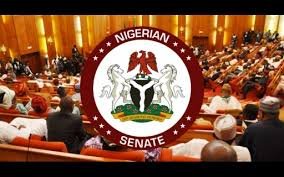The Senate is preparing to debate a motion aimed at addressing the alleged genocide against Christians in Nigeria.
The motion titled: “Urgent need to correct misconceptions regarding the purported Christian genocide narrative in Nigeria and international communities,” will be formally introduced when the Senate reconvenes on Tuesday, by Senator Mohammed Ndume (Borno South).
Co-sponsored by Senators Sani Musa (Niger East), Aliyu Wamakko (Sokoto North), and Ibrahim Bomai (Yobe South), the motion is anticipated to spark a vigorous debate in the Senate.
In the draft motion obtained by reporters on Monday, Sen. Ndume contended that while Christian communities in Nigeria have indeed faced tragic attacks, it is misleading and potentially dangerous to depict the country’s security crisis as solely a religious issue.
Read also:
- Senate blocks Natasha Akpoti’s Return despite end of 6-month suspension
- Another fierce showdown in Nigerian Senate beacons as Natasha Akpoti’s suspension ends today
- Senate Deputy Chief Whip distributes educational materials to Ebonyi North Schools
“Framing the crisis in purely religious terms risks exacerbating sectarian divisions, misguiding international policy, and undermining national unity,” the draft asserts.
The motion highlights that Nigeria’s security challenges are complex, arising from a combination of terrorism, insurgency, communal conflicts, banditry, and criminal activities, impacting individuals of all religious, ethnic, and regional backgrounds.
It cautions against the dangers of simplified narratives gaining traction internationally, particularly recent initiatives in the US Congress and Senate to label Nigeria as a “country of particular concern” for alleged religious persecution.
The motion proposes several key resolutions for the Senate to consider, including the rejection of the genocide label.
The Senate is expected to officially dismiss the broad characterization of the violence as a “Christian genocide,” calling it a dangerous oversimplification of the multifaceted national crises.
Additionally, the motion advocates for a strategy, urging the federal government to adopt a more data-driven and transparent approach to public communication, particularly through the Ministry of Foreign Affairs and security agencies, to counter misinformation with verifiable facts and figures.
It also calls on religious leaders, civil society organizations, and the media to act with caution and responsibility in their public statements and reporting, which could exacerbate sectarian tensions.
Foreign diplomatic missions, especially the US Embassy, along with international media and human rights organizations, are encouraged to rely on balanced, verifiable, and credible sources when assessing Nigeria’s religious freedom and security situation.





